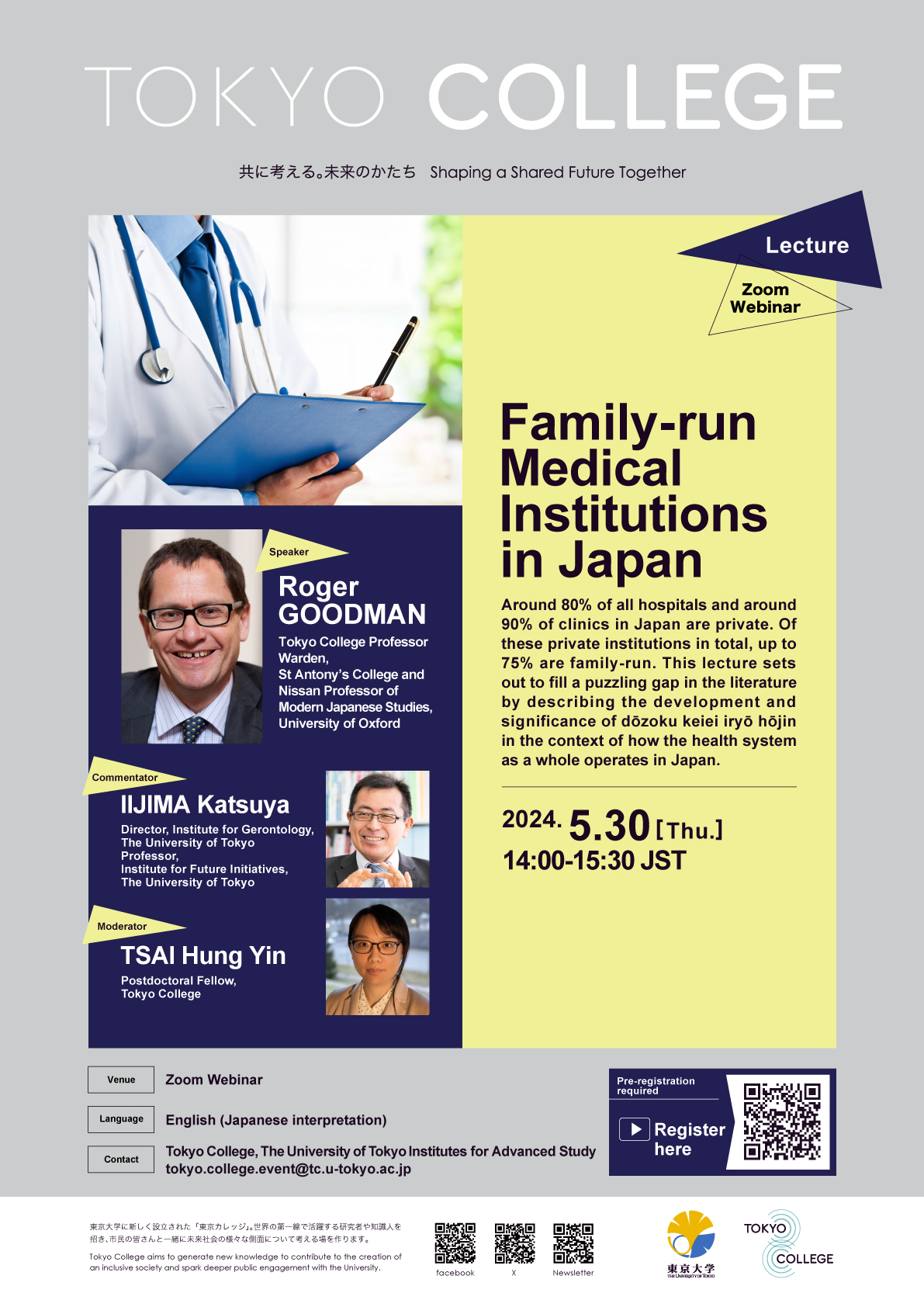Family-run Medical Institutions in Japan (Lecture by Prof. Roger GOODMAN)

| Date(s) | Thursday, 30 May 2024, 14:00-15:30 JST |
|---|---|
| Venue |
Zoom Webinar (Registration here) |
| Registration | Pre-registration required |
| Language | English (Japanese interpretation) |
| Abstract |
Around 80% of all hospitals and around 90% of clinics in Japan are private. Of these private institutions in total, up to 75% are family-run. This lecture sets out to fill a puzzling gap in the literature by describing the development and significance of dōzoku keiei iryō hōjin in the context of how the health system as a whole operates in Japan. |
| Program |
Lecturer Roger GOODMAN (Tokyo College Professor; Warden, St Antony’s College and Nissan Professor of Modern Japanese Studies, University of Oxford) Commentator IIJIMA Katsuya (Director, Institute for Gerontology, The University of Tokyo; Professor, Institute for Future Initiatives, The University of Tokyo) Moderator: TSAI Hung Yin (Postdoctoral Fellow, Tokyo College) |
| Speaker Profile |
Professor Goodman has been involved in area studies in Oxford continuously for almost forty years. He embarked on a doctorate in the social anthropology of Japan at St Antony’s College in 1982. In 2004, He became the head of the newly-established Oxford School of Global and Area Studies (OSGA) which brought together many of the social scientists in Oxford working on Africa, China, Japan, Latin America, Russia and Eastern Europe. In 2008, he became Head of Oxford’s Social Sciences Division which, with 14 departments (including OSGA) and over 900 academic staff, is one of the largest groups of social scientists anywhere in the world. In 2017, he took up the Wardenship of St. Antony’s College along with the Nissan Professorship. He was elected a Fellow of the Academy of Social Sciences in 2013 and was President and Chair of the Academy’s Council between 2015 to 2021. |
| Organized by | Tokyo College, The University of Tokyo |
| Contact | tokyo.college.event@tc.u-tokyo.ac.jp |
















